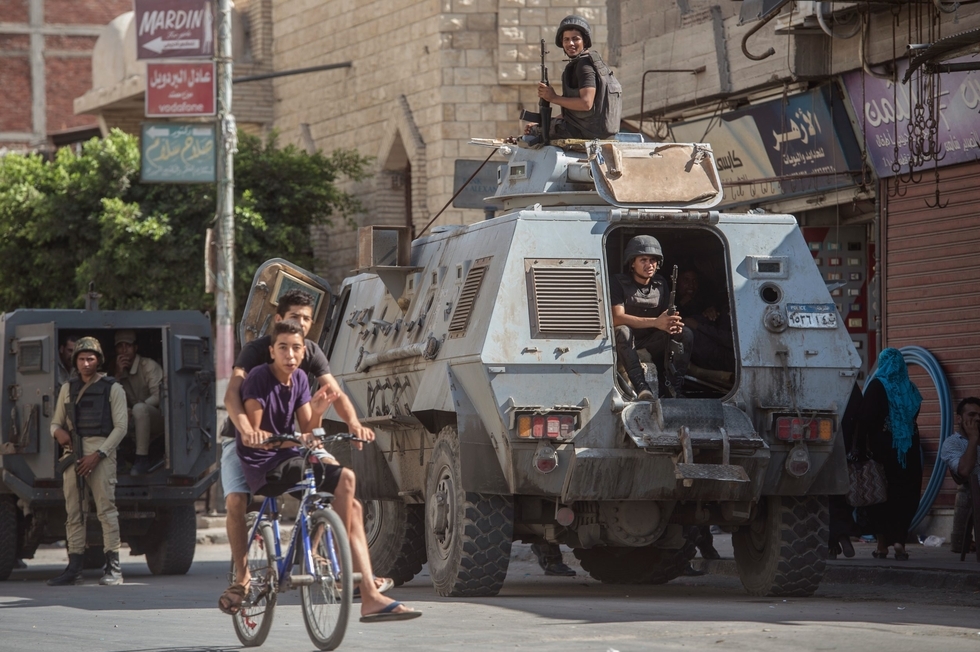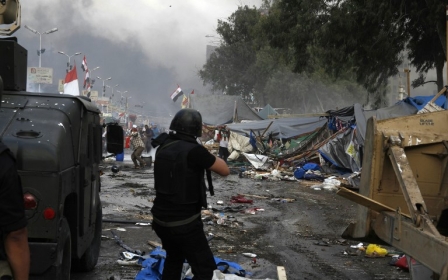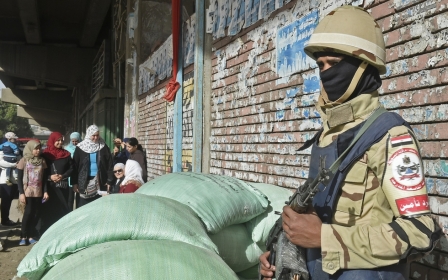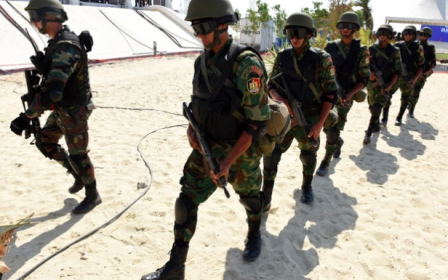End of lockdown in Egypt's north Sinai brings limited relief to residents

Severe restrictions on residents in the north of Egypt's Sinai Peninsula were lifted over the weekend, though normalcy has failed to return thanks to a shortage of fuel, a days-long blackout and the continuation of security measures.
North Sinai has been in lockdown for seven months as the Egyptian military has waged a campaign dubbed Comprehensive Operation Sinai 2018 against a local branch of the Islamic State (IS) group and other militants.
As a result residents have been subjected to restrictions on travel and severe shortages of food, medicine and fuel, measures that the authorities said on Friday would be lifted over the weekend.
In a statement published on the official North Sinai Governorate's Facebook page, the region's newly appointed governor, Major-General Mohamed Shousha, promised travel to and from Egypt’s mainland would be unobstructed and car owners would be handed a weekly stipend of 15 litres of fuel.
The international highway connecting north Sinai to Egypt’s mainland has been blocked for travellers since February, unless they obtained permission from the authorities through a prolonged process.
The military also limited access to fuel in the area, in an attempt to stop the ease of militants' movements and avoid petrol stations being targeted by attacks.
However family members of north Sinai residents, who have been cut off from the outside world thanks to a blackout that lasted from Saturday until mid-Monday, told Middle East Eye that only one petrol station will be reopened, in the provincial capital al-Arish.
Shousha, who was the region's governor before the 2011 uprising and was reappointed on 30 August, said schools that had been closed by the military campaign in north Sinai will reopen their doors for students on 22 September. Universities will also open on 13 October, he said.
False hope
The news of eased restrictions came as a breath of fresh air for nearly half a million citizens stranded in north Sinai.
Although it is not the government’s first against the militants, who have killed thousands since mid-2013, the operation was announced with much fanfare as it came weeks before a presidential election, and began three months after an attack in which at least 310 people were killed as militants targeted north Sinai's al-Rawda Mosque in November 2017.
Translation: Movement in the taxi rank is regular in the city of al-Arish after the cancellation of restrictions on movement from Sinai, and the same for restrictions on the supply of vehicle fuel starting today in a remarkable breakthrough in the situation in Sinai.
However, as the government regularly celebrated progress in its "war in terror" through announcing the killing of militants, the demolishing of hideouts and the seizing of weapons, nothing was officially reported of the plight of civilians caught in the crossfire.
In April, Human Rights Watch warned of a looming humanitarian crisis in the region due to constraints on movement of people and goods causing severe shortages in foods and medicine supplies, accusations that were denied by a military spokesperson. Meanwhile, Amnesty International confirmed reports that the army has used internationally banned cluster bombs on its war against militants.
Journalists have been barred from accessing the region for years, and official reports on the counter-terror operation have been the main source of information on the situation in north Sinai.
Although news of the ease was welcomed by residents of north Sinai, some expressed doubts on social media that life would be made significantly easier.
Translation: Today we were granted the freedom of travel, which has been constrained since 9 February. Travelling itself is a different story that requires a lot of explaining. Furthermore, 15 litres of fuel per week.
Relatives of north Sinai residents that contacted their family before the blackout took hold on Saturday told MEE that only a fraction of the region's population was able to purchase fuel thanks to authorities only opening one petrol station with limited capacity. Long queues snaked outside the al-Arish facility, they said.
Residents of north Sinai, who often resorted to social media to tell of their plight amidst a media blackout imposed on the government's anti-insurgency operations, have been unable to use these platforms as the powercut cut all communication in the region.
The governorate's official Facebook page announced a four-hour blackout on Saturday "for major maintenance", but the powercut extended to Monday evening.
"My family has been looking forward to the ease of movement. They were planning on visiting us in Sharkiya, where we're living. But with the blackout we're unable to contact them and now we're all the more concerned," said Mohamed, who has moved to the Nile Delta city last year as the situation in north Sinai worsened and wished to be identified only by his first name for security reasons.
Translation: North Sinai has been in darkness for two days.
Familiar tactics
Mohamed Salem, a lecturer at Sinai University and commentator on north Sinai, told MEE that the Egyptian military is using restrictions on civilians as a way to encourage them to leave north Sinai so the army can use more heavy-handed tactics against the militants.
"These changes in restrictions are not a reflection of the new governor, as security strategy with regards to north Sinai is made by the army. Basic human rights are used to pressure residents of north Sinai to abandon their homes, and the army has used them as punitive measures against the residents," he said.
"This is the approach used in Rafah and Sheikh Zuweid, in which the lands were torched and homes were demolished, but the strategy proved its failure as attacks continue to happen there.
"Easing of restrictions will be retracted with the first militant attack, which still happens, albeit the progress in the security situation in north Sinai," he added.
Blackouts have been recurrent in north Sinai since mid-2013, with residents often using hashtags on social media, like #Sinai_Out_of_Coverage, to report on their plight.
Middle East Eye propose une couverture et une analyse indépendantes et incomparables du Moyen-Orient, de l’Afrique du Nord et d’autres régions du monde. Pour en savoir plus sur la reprise de ce contenu et les frais qui s’appliquent, veuillez remplir ce formulaire [en anglais]. Pour en savoir plus sur MEE, cliquez ici [en anglais].




